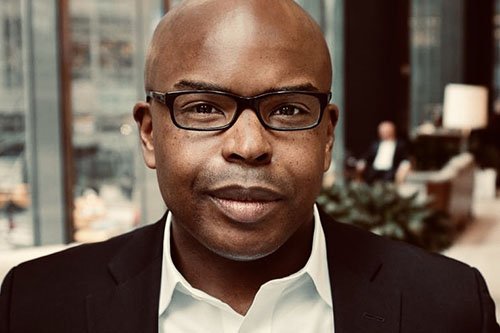For years, we’ve heard that every company is a tech company, or that every company is a media company. Both of those have elements of truth, but they don’t fully capture what’s happening in what’s increasingly being called the “Fourth Industrial Revolution.” As digital technology radically transforms society and empowers even the most seemingly minute stakeholder, the truth is that every company is, in fact, a consumer company. Even organizations that view themselves as business-to-business companies must now, instead, accept that they’re increasingly consumer companies, in part because so many aspects of their own operations—or their clients’ operations—can be quickly challenged, based on how well they address a new range of forces, including everyday people.
The Fourth Industrial Revolution is complicated, as Klaus Schwab, the World Economic Forum’s founder and the one who popularized the term, predicted. Digital transformation is unlocking vast opportunities for business and society. If embraced sufficiently it can help create a more humane workplace, in which a broader range of people gain the tools and resources to share in new prosperity. Organizations of all sizes are grappling with how to use some of the key elements of this transformation: artificial intelligence, the Internet of Things, and blockchain. And this set of challenges is complicated further by the fact that a company’s people have to evolve with the new systems.

When Abid Neemuchwala, CEO of Wipro, the giant global software and services firm, assesses how a company is managing its shift into the Fourth Industrial Revolution, he looks at a few essential elements. First, he analyzes the company’s business model, and whether its structure is explicitly built around delivering consumer value, rather than operating in silos based around products and functions. Second, he looks at how a company embraces various technologies – including AI, blockchain, and 5G. Finally, he considers how the company develops its people: does the organization seriously focus on reskilling people for the new, dynamic and flexible ways of working? “The enterprises that win the Fourth Industrial Revolution will be able to attract and retain the best talent,” Neemuchwala said during a recent Techonomy-Wipro discussion in Davos, on the sidelines of the World Economic Forum.
“The enterprises that win the Fourth Industrial Revolution will be able to attract and retain the best talent.”
–Abid Neemuchwala, CEO of Wipro
Changing corporate culture—and how people are empowered to work—has also been one of the trickiest parts of navigating the Fourth Industrial Revolution for Levi Strauss. Its chief financial officer, Harmit Singh, observes the company’s fundamental strategies haven’t changed since the German immigrant who founded it started selling denim jeans in San Francisco, in the 1850s. But there’s a radical cultural shift to which it must respond—driven by external, often global social factors. These days, Singh says, Levi’s is more tech-driven and less risk-averse. In fact, he says, “I want to automate just about every process. I want to digitize – it will be a major competitive differentiator for us.” It’s one of the reasons Levi’s is investing in upskilling employees. “They have to realize it’s not just about a job that’s disappearing,” Singh continues. “It’s about where the work profile will be. You could do much more with much less.”
Not so long ago, Singh turned to Wipro for help tackling a challenge: using AI to improve the forecasting of revenue. Wipro helped develop and implement algorithms that can predict revenue in the company’s North American business. The system’s accuracy is a percentage point or two better than the manual processes that it replaced, and faster. “It’s a CFO’s dream,” says Singh, noting the revenue forecasting will now be rolled out globally. The innovation, he adds, “takes the finance function to the next level. And we’re just getting started.” Few companies have yet automated such essential forecasting, so Levi’s is truly an early mover.

Micron, the U.S.-based memory and computer chip producer, is also embracing the tools of the Fourth Industrial Revolution. Its plants are bristling with sensors that measure even the sounds of the machines that make the all-important and hugely valuable “wafers” from which computer chips are cut. (A subtle variation in the noises they make often indicates a potentially costly malfunction.) Micron is also using AI to assess the current and needed skillsets of its employee base. “We’re using that intelligence to drive changes in manufacturing, in real time, and drive productivity, and lower costs,” says Sanjay Mehrotra, the company’s CEO.
Erik Ekudden, chief technology officer of mobile network
technology maker Ericsson, notes the existing 4G global wireless network became
a platform that enabled people all over the world to rise, and became a true
tool for change. Without it, he says we wouldn’t see the tools and services we take
for granted—like social media, online video, online shopping, or ride-sharing. That
network took decades to reach its current ubiquity. But the next-generation
platform, known as 5G, will allow enterprises and industries of all sorts to
take advantage of similar transformative potential. As an open global digital
innovation platform, Ekudden says it will enable, and demand, faster corporate
change than in the past, when companies tried to transform themselves industry
by industry, silo by silo.
For now, some industries—like financial services—are adapting more quickly than others to the Fourth Industrial Revolution. Some of these once-stodgy firms have aggressively moved into digital banking. Critically, they have also begun to relax cultural norms that now enable a more diverse group of leadership – mainly women—to rise. That adds to their resiliency and ability to surf the new waves of change.
But Neemuchwala warns that other industries, especially highly-regulated ones like health care and utilities, risk failing because of their slowness to innovate. “If you’re not an innovator, there will be someone else who will disrupt you,” he says. “There are a number of startups in health-tech and utility-tech, and other places, which could challenge the business models of other players…who aren’t adapting to the Fourth Industrial Revolution fast enough.”














